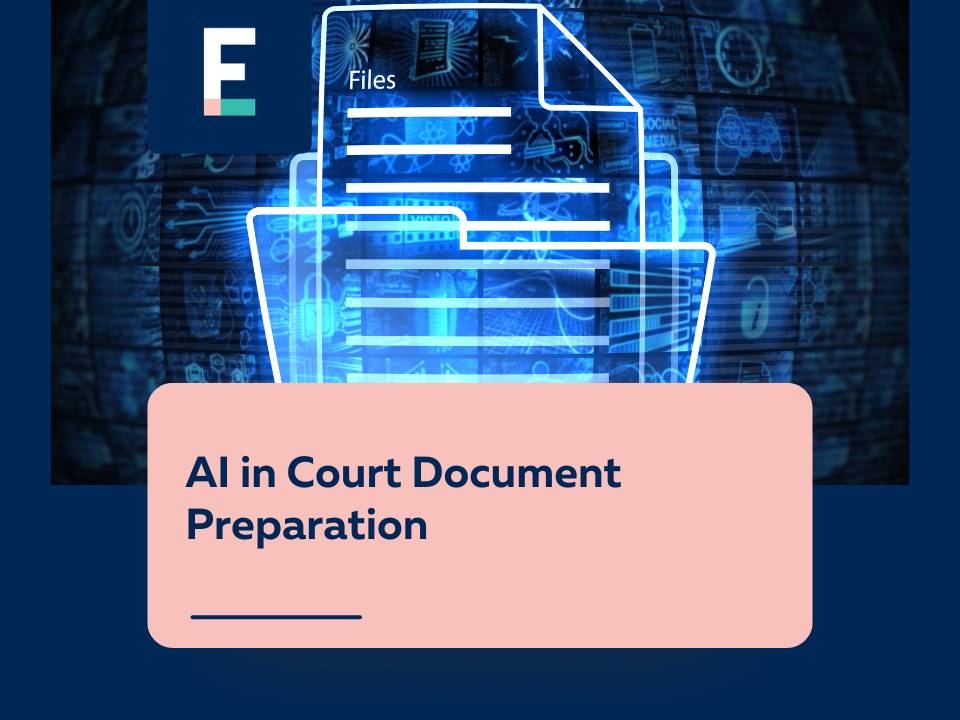The CJC Working Group and AI in Court Document Preparation
11th September 2025

11th September 2025


The Civil Justice Council (CJC) has recently established a new working group to explore the implications of using artificial intelligence (AI) in the preparation of court documents by legal representatives. This initiative reflects the growing interest in leveraging technology to enhance the efficiency and accuracy of legal processes. The working group, chaired by Birss LJ, includes notable members such as Joanna Smith J, Dan Hoadley, Professor Sue Prince, John Cuss, and Dr. John Sorabji, along with representatives from the Bar Council and the Law Society.
The primary objective of the CJC working group is to assess whether specific rules are necessary to govern the use of AI in preparing court documents, including pleadings, witness statements, and expert reports. This examination is crucial as it seeks to balance the benefits of AI with the need to maintain the integrity and fairness of the legal process.
For clients, the use of AI in preparing court documents could lead to significant improvements in efficiency and accuracy. AI technologies have the potential to streamline document preparation, reducing the time and cost associated with legal proceedings. This could make legal services more accessible and affordable for clients, particularly in complex cases where extensive documentation is required.
However, the introduction of AI also raises concerns about the quality and oversight of legal documents. Clients may worry about the potential for errors or biases in AI-generated documents. The working group's consultation paper and subsequent report will likely address these concerns, ensuring that any AI use is subject to rigorous standards and oversight to protect clients' interests.
The integration of AI in legal processes does not diminish the role of legal professionals. Instead, it emphasises the need for lawyers to adapt and enhance their skills to work alongside AI technologies. Legal representatives will continue to play a critical role in interpreting and applying the law, providing strategic advice, and ensuring that AI tools are used ethically and effectively.
The CJC working group's examination of AI in court document preparation represents a significant step towards modernising the legal system in England and Wales. By carefully considering the implications for clients and the legal profession, the working group aims to develop a framework that harnesses the benefits of AI while safeguarding the principles of justice and fairness. As the legal landscape evolves, clients can expect more efficient and accessible legal services, supported by the responsible use of technology.
If you are looking for support with your family law matter, please get in contact today.

Why Choose Us?
Reasons why clients choose Fenton Elliott to represent them and get the results they expect.
More about us
Contact Us Today
If you are looking for employment or family law advice we can help. We will respond quickly to all enquiries.
Free enquiry